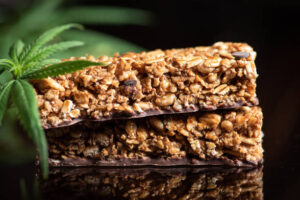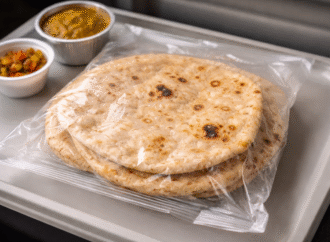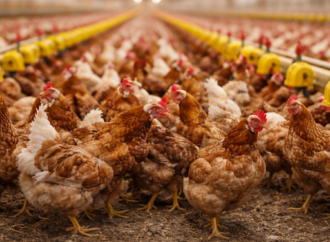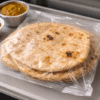India’s food industry is undergoing a dynamic transformation as consumers actively prioritize health and wellness. A significant portion of the population is embracing mindful eating habits, opting for snacks and meals that deliver both nutrition and functionality without compromising on flavour. This shift stems from rising disposable incomes, urbanization, and a heightened awareness of preventive healthcare. Consumers are no longer satisfied with empty calories; instead, they seek food choices that align with their long-term health goals. This growing demand is reshaping the food market, compelling brands to innovate and meet the expectations of health-conscious buyers.
A Paradigm Shift in Snacking Culture

Indian consumers are redefining snacking by placing health and nutrition at the forefront. Traditionally indulgent and flavor-heavy snacks are making way for options like vegetable sticks, multi-grain crackers, nuts, seeds, and rice-based snacks. Supermarkets now stock a diverse array of fried, baked, air-fried, and roasted products catering to varied dietary preferences.
Traditional Indian ingredients are reclaiming their place in this health-conscious snacking evolution. Items such as brinjal, banana, jackfruit, okra, and potatoes are gaining traction, alongside classics like roasted peanuts, chana dal, and moong dal. This “root-to-fruit” approach resonates with consumers seeking minimally processed, natural foods that offer both authenticity and transparency.
Health Awareness Driving Choices
Indian consumers are increasingly scrutinizing nutritional labels and selecting healthier snacks. According to NielsenIQ, 63% of consumers actively seek nutritious options, and nearly half examine product labels for their nutritional content. This demand has fueled the growth of “smart snacking,” a segment growing 1.2 times faster in value than traditional snacks.
While metropolitan areas lead this trend, rural and semi-urban regions are also witnessing significant growth. This widespread acceptance reflects the universal appeal of health-conscious products across India’s diverse demographics.
Palm Oil Under Scrutiny
Health-conscious consumers are rejecting snacks made with palm oil due to its high saturated fat content, environmental impact, and potential to produce carcinogenic contaminants when heated. Brands are responding by switching to healthier alternatives like sunflower, groundnut, and rice bran oils. For instance, PepsiCo is experimenting with alternatives for its Lay’s chips, while smaller brands leverage palm oil-free claims as a competitive advantage.
Rise of the ‘Better-for-You’ Segment
“Better-for-you” (BFY) products, which balance indulgence with health, are capturing consumer interest. These items reduce harmful ingredients like refined sugar, flour, and oils, offering alternatives such as maida-free bread, jaggery-sweetened snacks, and non-fried instant noodles. Mothers represent a key demographic in this space, with brands targeting this audience with kid-friendly, health-focused products. By providing healthier versions of beloved snacks, these brands address the conflict between children’s preferences and parental concerns.
Technology and Innovation Leading the Way
Advanced technologies are revolutionizing the food industry. Microencapsulation ensures the stability and delivery of nutrients, flavours, and bioactive compounds in snacks, preserving sensitive ingredients during processing. Clean-label products, prioritizing natural and eco-friendly practices, appeal to environmentally conscious consumers. However, small-scale manufacturers face challenges such as high production costs and regulatory hurdles.
Celebrity Influence and Social Media
Celebrity endorsements and social media are amplifying the health food movement. Figures like Yuvraj Singh, with his brand Twiddles, and campaigns like “Label Padhega India” are educating and empowering consumers to make informed decisions. Social platforms serve as crucial tools for spreading awareness about nutrition and food quality, driving transparency and consumer trust.
Future Outlook: Addressing Challenges
India’s snacking market is poised for rapid growth, with health-conscious snacks, palm oil-free alternatives, and BFY products leading the charge. While these trends are promising, challenges such as the affordability of healthier snacks and the high cost of clean-label production persist.
To overcome these obstacles, brands must focus on innovative approaches, such as scaling the production of sustainable ingredients and educating consumers on the long-term value of health-focused products. Policymakers and industry stakeholders should collaborate to make healthy snacks more accessible and affordable across all regions. By addressing these issues, India can achieve a balance between indulgence and mindful consumption, paving the way for a healthier future.
 Food Manifest
Food Manifest 


















